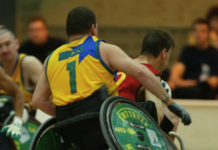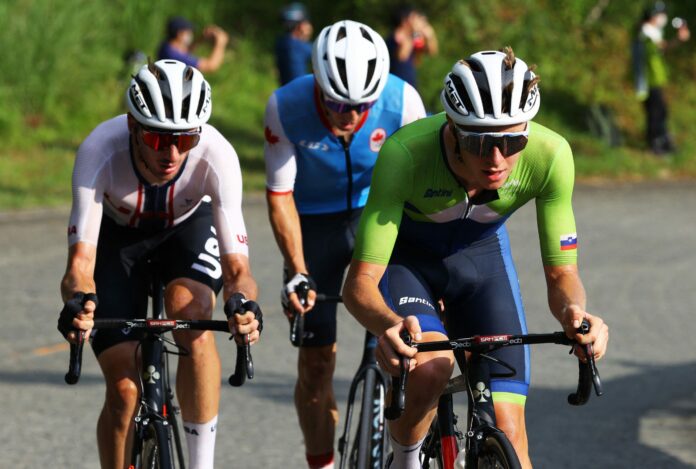The Olympic Games are considered to be sport’s biggest occasion. Road cycling is often met with a slight shrug at the Olympics, however, given its small schedule of only four races between the men and women. This is far fewer than at the senior World Championships where other two-wheeled events are celebrated.
There’s also a discrepancy in the Olympic cycling schedules. It doesn’t seem fair that track cyclists have a whole week-long schedule while road riders only have two events to ride.
This leaves a large void in the Olympic cycling programme waiting to be filled. For this, the Games should honour cycling’s most illustrious format: the stage race. The Tour de France, Giro d’Italia and Paris-Nice are all stage races, and are some of the most renowned and popular in the sport.
In line with the Olympic philosophy of pooling sport’s biggest events, a road cycling stage race passes the criteria to make it onto the programme. And who knows – if the Olympic organisers can smooth out some logistical worries, a road cycling stage race could have the potential to be on a similar footing to the Tour de France in future years.
Related questions you can explore with Ask Cyclist, our new AI search engine.
If you would like to ask your own question you just need to , or subscribe.
How would it work?
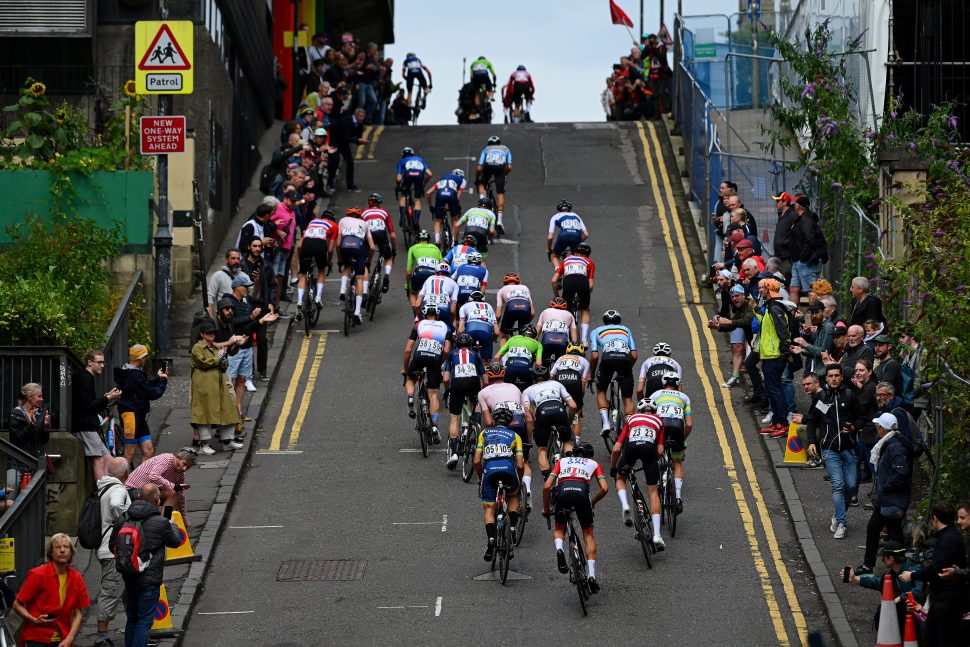 Dario Belingheri/Getty Images
Dario Belingheri/Getty Images
The Olympic stage race would operate like any other stage race on the calendar.
I suggest a five-stage-long format to take place over a handful of days. For the five stages, a healthy balance of terrain should be included. Five also feels like a fair precedent set by other multi-day Olympic events.
Ideally, the parcours would include two mountain stages, a flat stage, a time-trial and a ‘wildcard’ stage. This could be a punchy day or a stage on surfaces such as gravel or cobblestones. Of course, this all depends on the terrain available in the host nation.
However, the time-trial stage should be kept for the final day. This would be similar to the modern pentathlon which is decided in real-time during the shooting and running combined race. The Olympics does not deserve a flat stage sprint procession like at the Tour de France. Perhaps, the finishing line could be placed inside the Games’ main athletics stadium – like in the old Olympic marathons – or in the centre of the host city.
How would you win the race?
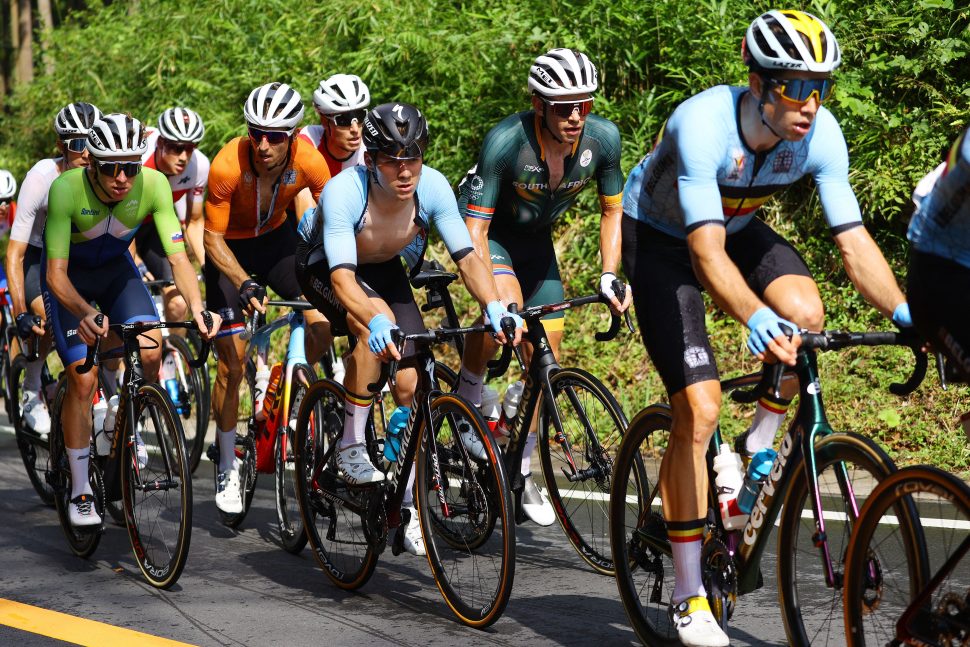 Tim de Waele/POOL/AFP via Getty Images
Tim de Waele/POOL/AFP via Getty Images
The stage race would be decided by accumulated time over the five stages.
There’s a debate to be had over whether timings or points would be a fairer score. Points could be converted from timings like in athletics’ decathlon and heptathlon events. However, keeping in line with stage race standards, timing feels the fairest and simplest means of calculating the overall standings.
Riders’ times from each stage would be added together to create a general classification. There would be an overall leader at the end of each stage and the gold medal would be given to the rider with the lowest overall time over all of the stages. This spiel is very familiar to cycling fans.
The stage race format might bring a strange dynamic where riders don’t celebrate stage wins given that they don’t yield any medals, though I’d like to think that winning a day of racing at the Olympics would warrant a full champagne podium ceremony even if it is sans medals. Perhaps a gold jersey could be offered to the ongoing GC leader? That said, this doesn’t happen in the decathlon or modern pentathlon events, so I’d suggest a gold race number instead.
Who would win?
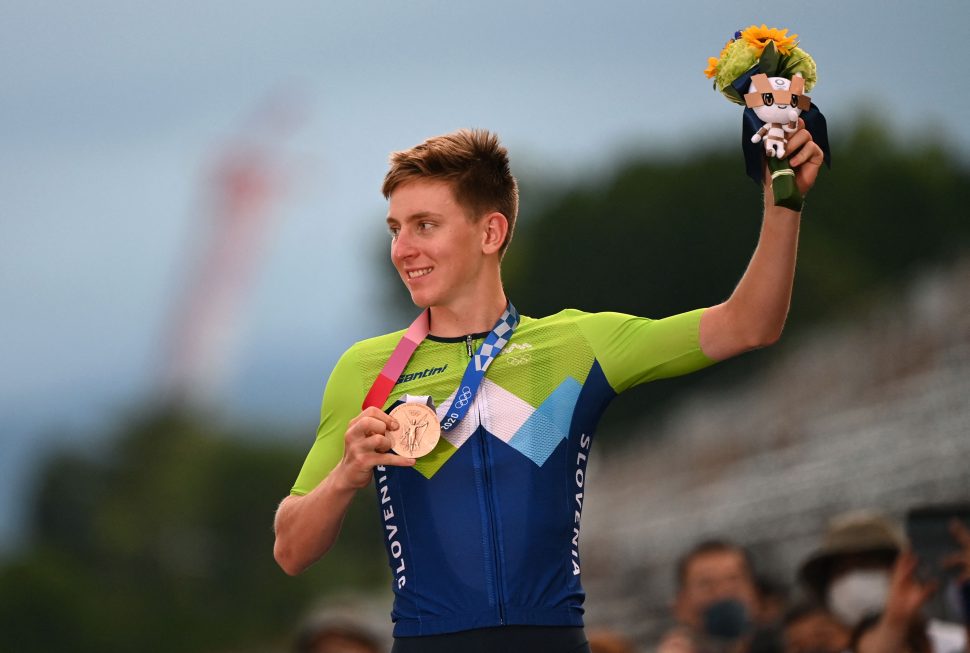 Greg Baker/AFP via Getty Images
Greg Baker/AFP via Getty Images
There are no stage races on the current senior UCI level that are fought out between national teams. As such, the format would be unprecedented and incredibly fascinating. Just imagine a week-long World Championships road race.
The Slovenian team would boast Tadej Pogačar and Primož Roglič. Pogačar, in theory, should be the favourite for gold in this fictional event. He has an incredible record in stage races, having lost only one week-long stage race since 2021. Spain would also have a strong team including Juan Ayuso and Carlos Rodríguez in the hunt the medals, while the Danish double act of Mattias Skjelmose and Jonas Vingegaard would arguably be even stronger.
The women’s Dutch team would be mind-blowing, with Demi Vollering the out-and-out favourite, though Italian stars Gaia Realini, Elisa Longo Borghini and Silvia Persico could prove strong competition.
Whoever the winners would be, expect to see them using a gold bike at future stage races in honour of their Olympic titles.
How would it fit into the schedule?
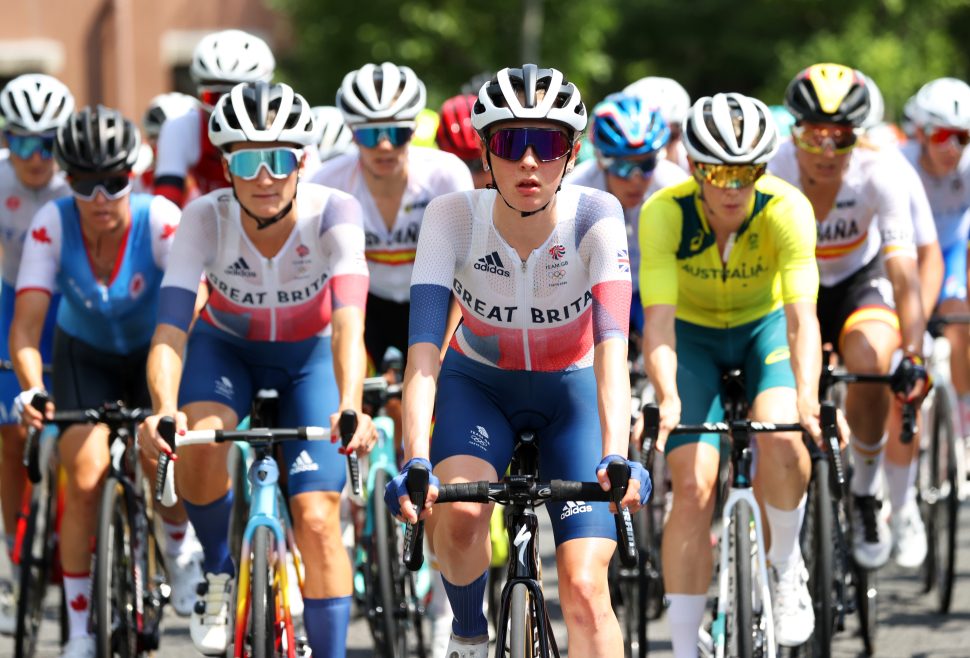 Michael Steele/Getty Images
Michael Steele/Getty Images
The logistics of an Olympic stage race would be tough to organise. The Olympic schedule already packs in hundreds of events across multiple sports. A stage race would require mass road closures and strict security measures in place. Finding the time for a multi-day cycling event would be the hardest part of this plan. To make it more complicated, separate races would need to be organised for men and women.
The race would most likely take place in the periphery of the host city and deeper into the host country. This isn’t all too dissimilar to the Olympic Torch Relay or the existing Olympic road events. However, the more rural programme of the stage race would spread some of that Olympic spirit around outside of the hustle and bustle of the host city.
In terms of timing, the stage race could fit into the second or third week of the Games when the time-trial and road race events have concluded. This also wouldn’t clash with other road racing events outside the Olympics such as the Vuelta a España. These timings would, however, potentially create conflicts for riders wishing to compete at Olympic track cycling events.
Higher, faster, stronger
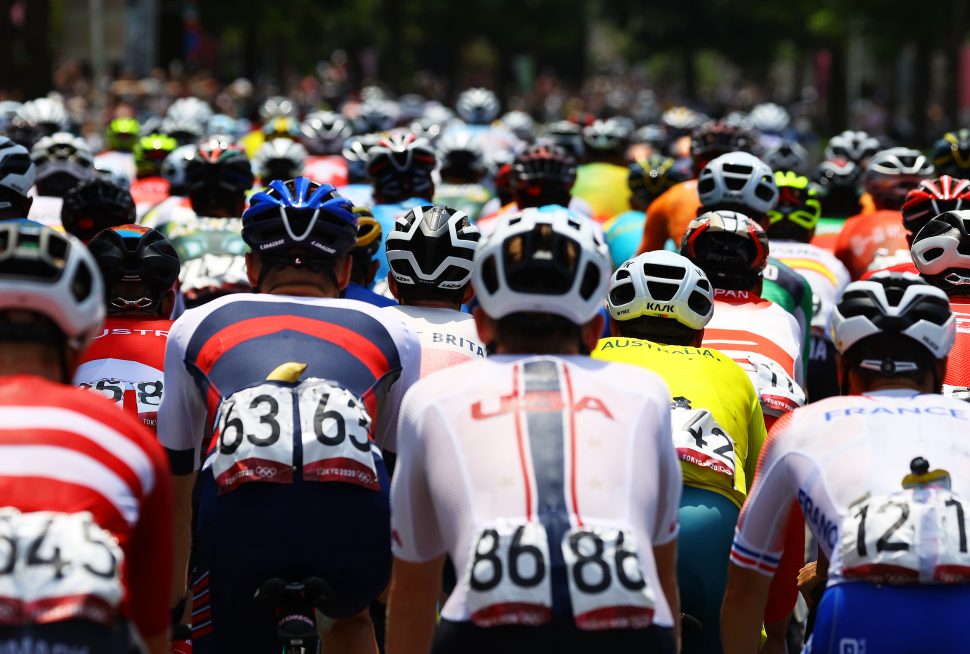 Tim de Waele/Getty Images
Tim de Waele/Getty Images
Stage racing is the focal point of much of the cycling calendar. The Olympics should honour this tried-and-tested format. Tour de France champions may never score an Olympic medal due to the constrained programme on offer at the Olympics currently. That doesn’t feel right.
The Olympic Games seek to represent each sport’s top events, ones that are typically seen year-round in competition. In road cycling, there’s a slight chasm between the events on offer at the Olympics and the year-long mechanics of road cycling. The one-day road race is important, but it isn’t the most representative format for deciding who the best road cyclist is. Without a doubt, the Tour de France is of higher prestige and is better known to a wider audience. The fact a stage race of a similar format isn’t on the Olympic programme is a little perplexing.
Imagine having the athletics programme without a 100m race. That’s what this feels like. There are few other sports in the Games that fail to represent the respective sport’s most popular format or event.
The Olympic slogan is ‘higher, faster, stronger’. Nothing says higher, faster, or stronger more than a hefty mountain stage as part of a multi-day display of athletic ability. The TV and spectator potential is there. The sporting principle is also evident. All that’s left is for someone at the IOC and UCI to be brave enough to table this motion.
Source link : https://www.cyclist.co.uk/in-depth/opinion-olympics-road-cycling-stage-race
Author :
Publish date : 2024-07-29 17:26:12
Copyright for syndicated content belongs to the linked Source.





















